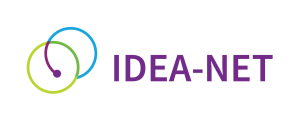East Tennesse State University – Tennesse, America
In the last two years the programme has carried out the following activities with regard to equal access, inclusion and diversity:
Support and counselling for students and university staff
Lectures, workshops, seminars for students, faculty and non-teach staff
Training courses for peer educators
Public promotion (e.g. production of media content such as podcasts)
Fundraising events
Improving physical accessibility
Improving digital accessibility
In addition to the mentioned activities to support inclusion, Access ETSU also implements strategy/action plans and recommendations/guidelines to counter exclusionary and discriminatory practices at the university.
IDEA-net: Expanding the network of Inclusion, Diversity, Equity and Access (IDEA) practitioners in higher education through institutional capacity building
Project ref: 2022-1-NL01-KA220-HED-000089789

This project has been funded with support from the European Commission. This website reflects the views only of the authors, and the Commission cannot be held responsible for any use which may be made of the information contained therein.

